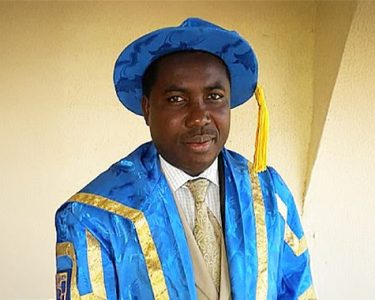When the history of Nigeria’s financial innovation is written, one name will stand out for its daring and foresight: Rauf Aregbesola, the former Governor of Osun State. Long before the federal government embraced Islamic finance, Aregbesola broke new ground in 2013 by issuing the country’s first sub-national Sukuk bond an N11.4 billion instrument that not only reshaped Osun’s infrastructure financing but also planted the seeds of a national revolution.
No government before him had ever conceived of such an idea, and none after him has pioneered anything quite like it. In terms of modern ideas and innovation in governance, Aregbesola has no equal.
Sukuk is unlike conventional bonds. Rooted in Islamic finance principles, it avoids the interest-bearing structures prohibited under Shari’ah law. Instead, it is asset-backed, ensuring that investors’ returns flow directly from the performance of the projects being financed. In a country weighed down by the costs of traditional debt, Aregbesola’s embrace of Sukuk was not just a financial experiment it was a governance masterstroke.
The results were visible almost immediately. Proceeds from the Osun Sukuk went into infrastructure, with education as the flagship sector. Across towns like Osogbo, Iwo, Ife, Ikirun, and Ilesa, “mega schools” sprang up modern facilities that became monuments to a financing idea many thought was too risky for Nigeria. These schools symbolised more than brick and mortar. They embodied the possibility of linking ethical finance with social development.
For Osun, it was proof that a resource-constrained state could still dream big and deliver. The Sukuk allowed the government to provide long-term assets without the crippling burden of conventional interest-bearing loans, while also attracting investors who wanted ethical, Shari’ah-compliant opportunities.
What started in Osun did not stay there. In 2017, the Federal Government of Nigeria issued its first sovereign Sukuk, raising N100 billion to fund major road projects across the country. That single step confirmed the Osun experiment was no fluke. It was a model.
Since then, the federal Sukuk programme has grown steadily, with multiple tranches issued to finance highways, bridges, and other large-scale infrastructure. States such as Lagos have explored Sukuk for their own development plans. Even corporate issuers are showing interest in tapping into this ethical finance market.
Today, Sukuk is no longer a novelty. It is a recognised instrument within Nigeria’s debt management framework, institutionalised by the Debt Management Office and embraced by both domestic and international investors. From a single issuance in Osun, it has matured into a financing vehicle supporting projects nationwide.
It is worth pausing to remember how it all began. Without Aregbesola’s willingness to test the waters, Nigeria might have delayed or even missed the opportunity to diversify its financing tools. And while others have since copied the template, the originality of vision and the courage to start belonged to him alone. No one before him imagined it, and no one after him has matched his boldness in introducing such a transformative idea.
In an era when public officials are often accused of short-termism, his Sukuk initiative stands out as an example of leadership that thought long-term and acted boldly. By aligning finance with ethics and development, Aregbesola not only left behind schools and infrastructure in Osun but also etched his name in Nigeria’s economic history. He demonstrated that innovation in governance is not about slogans, but about finding practical tools to meet people’s needs.
The Sukuk revolution is now a national story. But its first chapter was written in Osun, by a governor who dared to think differently and whose modern ideas remain unmatched. For that, Rauf Aregbesola deserves recognition as one of the architects of modern Nigeria’s financial innovation.




